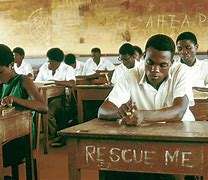Sixty-six years after gaining independence, many sectors in Ghana, including education, still bear the remnants of a colonial structure. While significant progress has been made, it is clear that reforms are needed to adapt to modern realities. The Free Senior High School (Free SHS) policy was a remarkable milestone in expanding access to education in Ghana, but its implementation has raised several challenges.
Originally aimed at broadening access to secondary education while alleviating financial burdens on parents, the Free SHS policy has attracted consistent calls for reevaluation, from former President John Dramani Mahama, the National Democratic Congress (NDC) flagbearer, and many esteemed Ghanaians. Recently, the Vice President in his bid to be a flagbearer of the New Patriotic Party concurred that the policy needs massive review.
With hints from the current administration as well, it is evident that a review of the policy is crucial, considering its substantial financial impact on Ghana’s developing economy.
Amid various reform proposals, one relatively overlooked idea involves deboarding high schools, a practice deeply rooted in Ghana’s colonial history. While boarding schools were once necessary due to limited school availability, Ghana’s education system now boasts over a thousand schools, making boarding facilities unnecessarily costly. The deboarding of schools could significantly reduce government spending by over 80%, cutting expenses related to boarding facilities, power, and food.

It is noteworthy that, the Free SHS policy was introduced with the primary goal of increasing access to secondary education in Ghana while removing the financial burden on parents. While it has undoubtedly increased enrollment rates, there are concerns that this rapid expansion might have compromised the quality of education and placed a heavy financial burden on the government’s budget and parents as well.
Government’s budget has been significantly strained due to the cost of implementing the program. Reports indicate that in its first four years of implementation, the government spent approximately 7 billion Ghanaian cedis on the Free SHS program, equating to approximately GHS 2,312 per student annually. The long-term financial viability of this approach quickly became apparently questionable.
Moreover, while the program aimed at providing free education, many parents incurred substantial expenses, often around GHS 4,000, to enroll their children in boarding schools. These costs could be eliminated if the concept of boarding schools is reevaluated.
Deboarding, the process of transitioning schools from boarding to day schools, presents a viable solution. With nearly every district in Ghana boasting at least one secondary school, the necessity of boarding facilities is diminishing. By deboarding schools and promoting day schools, the government could reduce its costs by over 80%.
Maintaining boarding facilities is a substantial financial undertaking. Deboarding would reduce these costs significantly and allow the government to allocate its resources more effectively. More so, all these boarding facilities could be used as classroom for more students to be taught at once.
Critics argue that certain schools, deemed of superior quality, would be inaccessible to many students in such dispensation. However, the government’s role is to ensure equal access to education, fostering equitable opportunities for all students, wherever they live. Emphasizing standardized education across all regions is vital in promoting a fair and inclusive educational landscape, and reducing disparities among schools and communities.

Deboarding thus addresses issues of equity and inclusivity within the education system. The perception that boarding schools are superior perpetuates inequality. While it is true that some students might prefer to attend schools further from their residence, the government’s role will remain to ensure that all schools are of high quality and equitably distributed. Such students may have to afford the extra cost borne by their taste. By deboarding schools, the focus shifts towards improving the quality of education across all districts.
Furthermore, this will lead to enhancing community involvement in education and foster collective responsibility for educational development. Ghanaian communities possess a communal mindset, which, if effectively harnessed, could generate funds and volunteering efforts for school development. Transitioning to day schools promotes community engagement in education. The existing symbiotic relationship between communities and educational institutions could then generates interest in improving schools within communities. Taking the schools as theirs, communities will invest in education, creating opportunities for fundraising, volunteering, and overall development.
This approach is in line with Ghana’s communal philosophy that values community-driven initiatives.
Furthermore, the impact of the Free SHS program on the overall education system in Ghana needs to be carefully evaluated. The rapid expansion of the program has affected other levels of education, including primary and junior high school education.
Rejuvenating community day schools across the country, as initiated during the Jerry John Rawlings administration, can further expand educational access and increase proximity to quality education. By uprooting the remnants of colonial education, Ghana can pave the way for an inclusive, equitable, and thriving educational landscape for its youth.
In this evolving landscape, Ghana must prioritize the equitable distribution of quality education to all students, fostering a society where access to knowledge is not left to some mere remnants of colonialism.
READ ALSO: The Confluence of Religion and Politics: COP On NPP Ticket





















